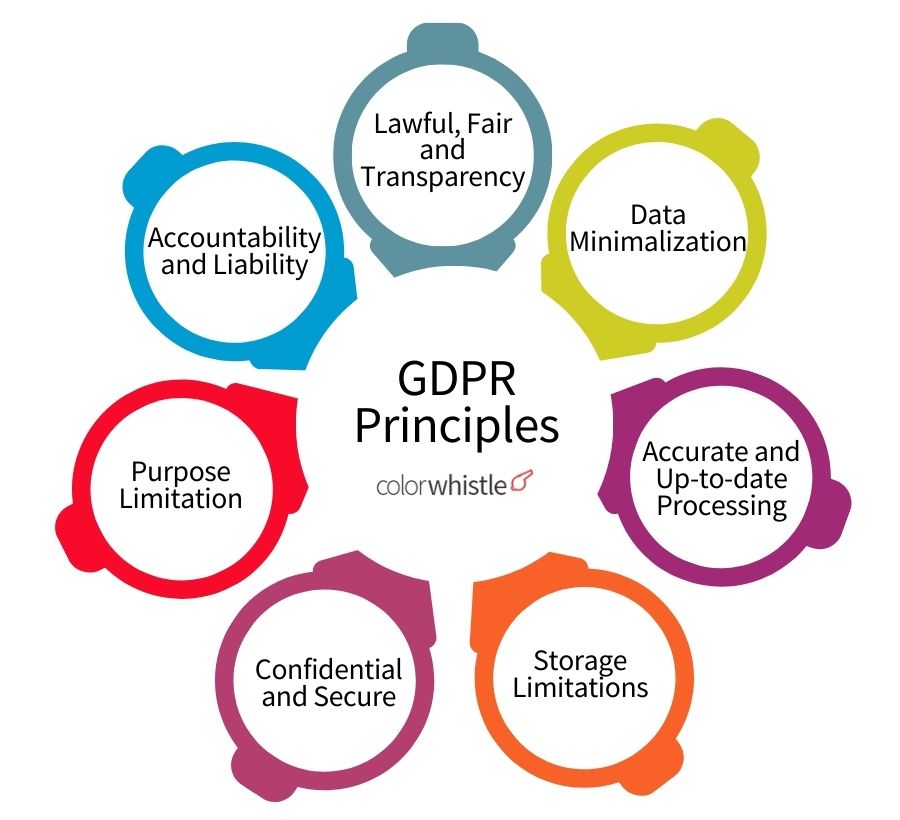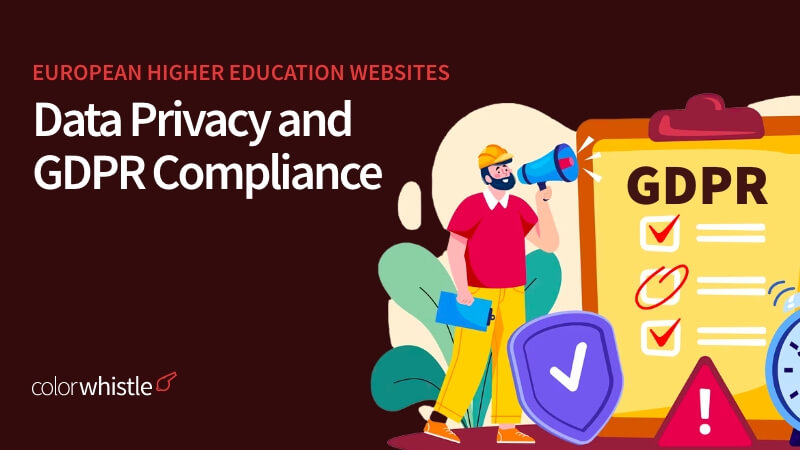Data privacy and GDPR compliance in European higher education websites have become paramount concerns. In an age where data is considered the new gold, safeguarding personal information has never been more critical. This holds especially true for European higher education websites, which house a treasure trove of sensitive student data. But it’s not just about locking away data; it’s about adhering to the rigorous standards set by the General Data Protection Regulation (GDPR).
Imagine you’re a prospective student eager to embark on your higher education journey at a prestigious European university. You begin your application process online, where you provide essential personal details, academic records, and perhaps even medical information. You trust that this institution will handle your data responsibly. But what happens when that trust is breached? In recent years, data breaches have become alarmingly common, even in the most reputable institutions. To avoid these conflicts you should take help from the best education website development company.
This blog explores the significance of data privacy in education websites and provides insights into GDPR compliance.
What is GDPR?
GDPR stands for General Data Protection Regulation. It is a comprehensive data privacy and protection regulation that was implemented in the European Union (EU) on May 25, 2018. GDPR replaced the Data Protection Directive 95/46/EC and introduced significant changes in how personal data is handled and protected within the EU and for organizations processing the personal data of EU citizens, irrespective of the location of those organizations.
The Prominence of Data Privacy in Higher Education
Protecting Sensitive Student Information
European higher education institutions collect and store a vast amount of personal data, including names, addresses, academic records, and sometimes even health information. Protecting this sensitive information is crucial to maintain students’ trust and comply with legal requirements.
Enhancing Institutional Reputation
A data breach can tarnish the reputation of an educational institution. Demonstrating a commitment to data privacy and GDPR compliance can help build trust among students, parents, and stakeholders.
Legal Obligations
GDPR, which came into effect in May 2018, imposes strict requirements on how organizations handle personal data. Non-compliance can result in hefty fines, making it essential for higher education websites to adhere to GDPR guidelines.

Also Read
Understanding GDPR Compliance
GDPR compliance is a multifaceted process that involves various aspects of data protection.
Data Mapping and Inventory
Start by identifying all the personal data collected and processed on your website. This includes admissions forms, student portals, and any third-party integrations.
Consent Mechanisms
Ensure that you have clear and precise consent mechanisms in place. Students and website users should understand what data is being collected and how it will be used. They must have the option to opt in or out.
Data Security
Implement robust security measures to safeguard data. To thwart data breaches, it is crucial to implement encryption, enforce access controls, and conduct routine security audits.
Data Processing Records
Maintain records of data processing activities. This includes documenting the purposes of data processing, data retention periods, and data sharing agreements.
Data Subject Rights
Educate your team about data subjects’ rights, such as the right to access, rectify, and erase their data. Have procedures in place to respond to data subject requests promptly.
Did you know?
According to CISCO, the majority of survey participants, specifically 90% of them, assert that they would refrain from making a purchase from a company if they lack clarity regarding how their personal information will be utilized or if the company fails to adequately safeguard their data.
Data Protection Impact Assessments (DPIAs)
Conduct DPIAs for high-risk processing activities. DPIAs aid in the identification and mitigation of potential risks affecting data subjects.
Data Breach Response Plan
Develop a comprehensive data breach response plan. In the event of a breach, you must notify the relevant authorities and affected individuals within the stipulated time frame.
Training and Awareness
Train your staff and raise awareness about GDPR compliance. Everyone involved in data processing must understand their responsibilities.
Third-Party Vendors
If you use third-party vendors or cloud services to process data, ensure they also comply with GDPR. Review your contracts with them to include data protection clauses.
Regular Audits and Updates
Periodically review and update your data protection policies and procedures to stay current with changing regulations and emerging threats.
Challenges in GDPR Compliance for Higher Education Websites
Complex Data Ecosystem
- Educational institutions often have complex data ecosystems with numerous touchpoints, making it challenging to track data flow
Consent Management
- Ensuring explicit consent from students and website users can be tricky, especially when dealing with minors
International Data Transfers
- If your institution collaborates with international partners or hosts data abroad, you must navigate cross-border data transfer regulations
Also Read
Recap
Data privacy and GDPR compliance are non-negotiable for European higher education websites. Safeguarding sensitive student information is not only a legal requirement but also an ethical obligation. By taking proactive measures with the proper education digital marketing agency and education website development agency to comply with GDPR regulations, educational institutions can protect their reputation, build trust with students and stakeholders, and create a secure digital environment for learning and research. Remember, data privacy in education websites is not a one-time task; it’s an ongoing commitment to protecting the rights and privacy of individuals.
Browse through our ColorWhistle page for more related content and to learn about our services. To get in touch with us and learn more about our services, please visit our Contact Us page.
What’s Next?
Now that you’ve had the chance to explore our blog, it’s time to take the next step and see what opportunities await!





